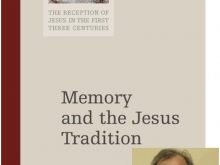How Mythic Story Worlds Become Believable (Johnston: The Greek Mythic Story World)
This is the second of two articles by Professor of Religion Sarah Iles Johnston. (The first article was addressed in Why Certain Kinds of Myths Are So Easy to Believe) I have been led to Johnston’s articles and books (along with other works addressing related themes by classicists) as I was led down various detours … Continue reading “How Mythic Story Worlds Become Believable (Johnston: The Greek Mythic Story World)”
